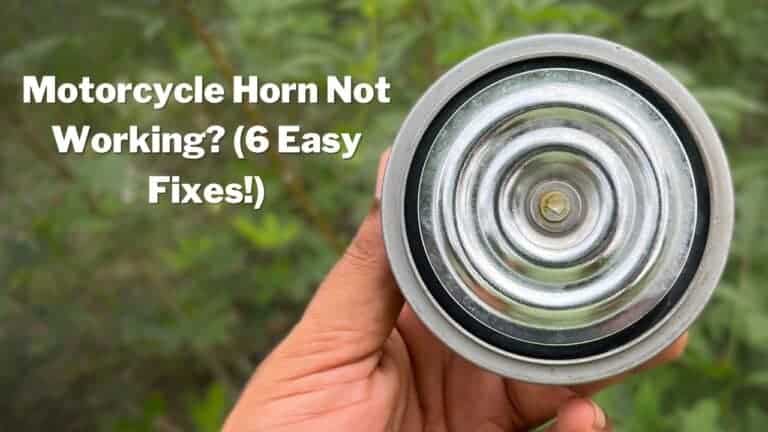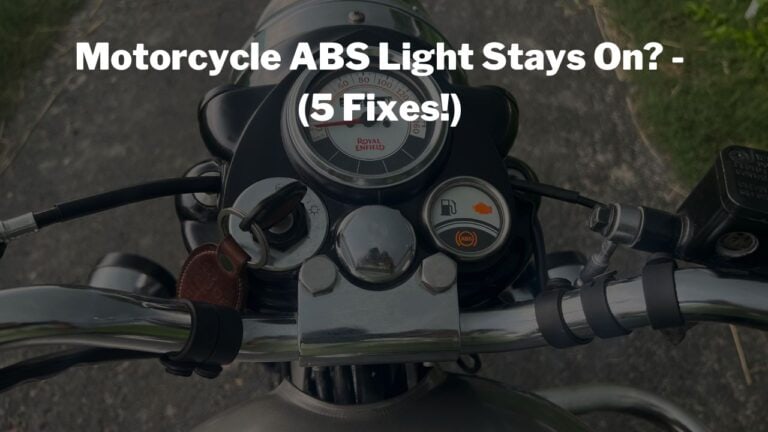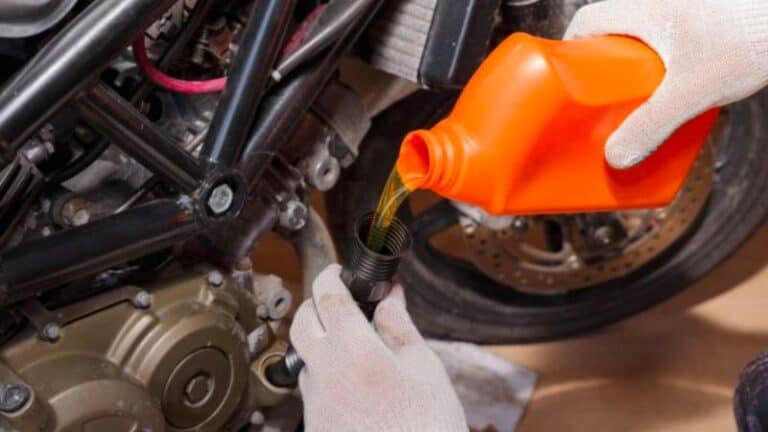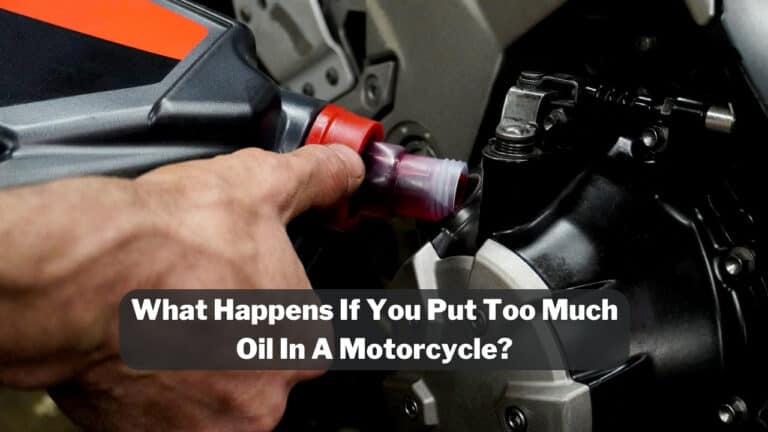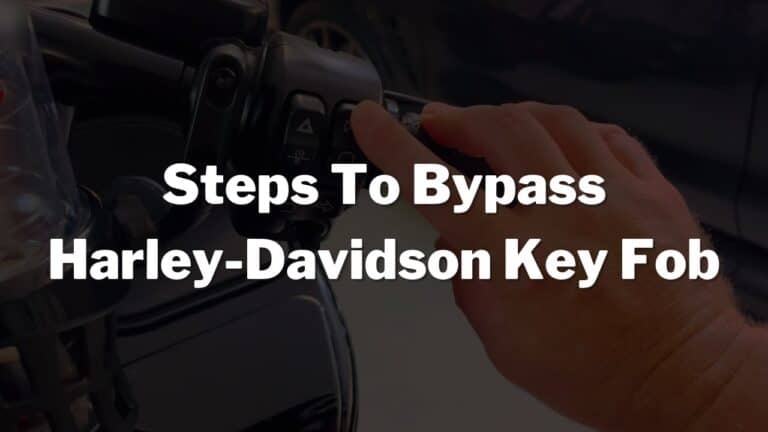Why Is My Motorcycle Front Brake Too Hard? -(5 Easy Fixes!)
In my last guide, you learned what to do when a motorcycle brake is not building pressure, and the brake lever feels spongy.
I received many emails where people told me their motorcycle’s front brake lever was too hard to pull.
So, this guide is dedicated to riders facing problems with the braking system. I will explain the several reasons why motorcycle front brake lever become too hard to pull.
Is your motorcycle’s front or rear brake too hard?
Don’t worry! It’s a common problem. That’s why I received hundreds of emails every week.
Table of Contents
Why Is My Motorcycle Front Brake Lever Too Hard?
A motorcycle front brake feeling excessively hard could result from multiple factors, including old and contaminated brake fluid, the master cylinder’s spring being corroded, the caliper piston jammed, brake pads being sticky, and the brake hose being defective.
However, the most common reasons are contaminated brake fluid and jammed caliper pistons. Replacing old brake fluid and applying silicon-based grease on the caliper piston will make your front brake lever lighter to pull.
But how do you know what component needs your attention?
I have explained the methods to rectify faulty components causing hard brake levers in the paragraphs below.
Read on to learn step-by-step methods to fix a hard motorcycle brake lever…
How To Fix A Hard Motorcycle Brake Lever
Here are five methods to solve a motorcycle’s stiff brake lever problem. But before moving ahead, I advise you to lubricate the brake lever pin and adjust the dial.
1. Change Brake Oil
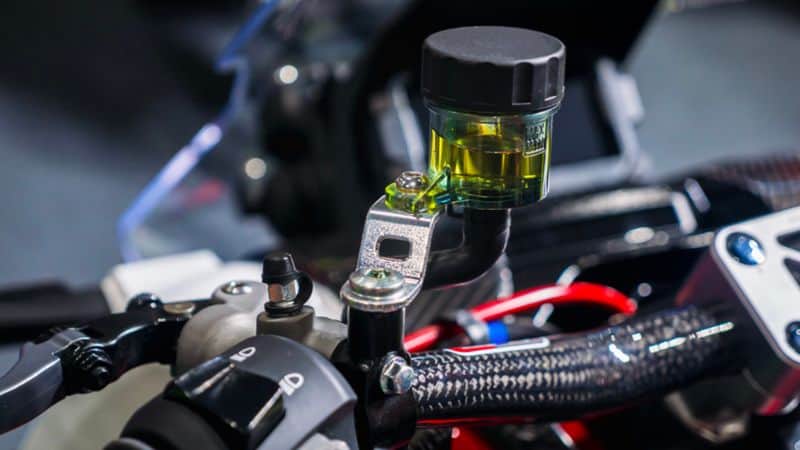
All modern motorcycles have hydraulic brakes that make the braking system highly effective. A special oil type (brake oil) generates hydraulic pressure in a hydraulic brake system.
The brake oil is an incompressible fluid that transfers pressure applied on the brake lever to the caliper piston attached to the disc pad assembly.
The brake fluid is a mixture of diethylene glycol, di-, tri-, and tetra ethylene glycol monoalkyl ethers.
These substances are hygroscopic, which attracts moisture and forms glycol crystals. Over time, the formation of these crystals makes your brake lever stiff and hard to pull.
So, the thing you should do is change your brake oil. Motorcycle manufacturers recommend changing brake fluid every 12 to 24 months.
Click here to read a guide on when to change brake fluid on motorcycles.
I have used QuickSilver DOT 4 brake fluid on my motorcycle and ATV, and their braking is very smooth.
Related: Can You Use Engine Oil As Brake Fluid?
2. Grease Caliper Piston
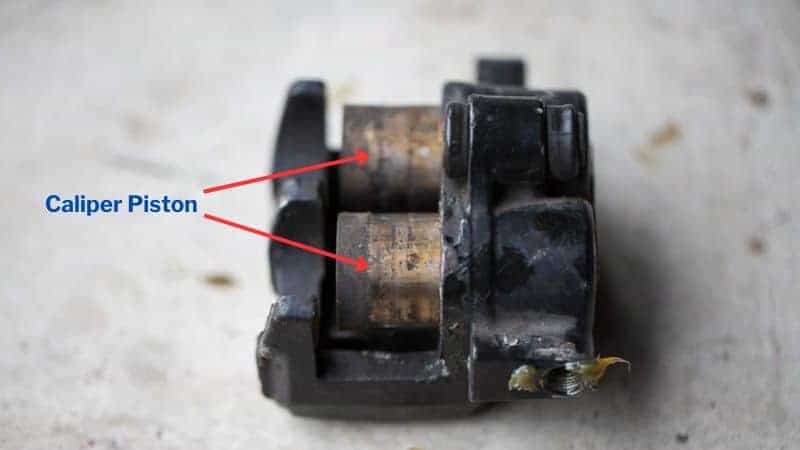
I’m assuming that you know the working principle of a hydraulic braking system. Please read my detailed guide if you don’t know how a motorcycle brake works.
All hydraulic brake system works on the principle of Pascal’s law, which states that the pressure applied on an incompressible fluid in an enclosed system applies the same pressure in every direction.
So, a smaller piston compresses the brake fluid in the master cylinder (located near the brake lever), and fluid applies that pressure on a larger diameter piston assembled on the brake disc.
But dust and oil contamination jams the larger piston (on the brake caliper), restricting its movement. Due to this, your motorcycle brake lever becomes hard to pull.
To fix this, you must open the brake caliper assembly and clean the piston. After cleaning it, apply silicon-based brake lube and assemble it back.
The lubricant will reduce friction and makes the piston movement easier. The stiffness will go, and your motorcycle’s front brake lever will feel lighter.
Click here to check the price of disc brake lube on Amazon
3. Rebuild Master Cylinder
As I told you earlier, the brake fluids are hygroscopic, which attracts moisture. This moisture causes corrosion to the master cylinder piston and springs.
Due to corrosion, the springs become stiff, causing hard to push the piston, and your motorcycle brake lever becomes hard to pull.
To fix this problem, you must rebuild your front brake master cylinder. Watch the video tutorial on rebuilding a motorcycle’s brake master cylinder.
4. Change The Brake Pads
The brake pads directly come in contact with the disc attached to the motorcycle wheel. The brake pads have friction lining that stops the motorcycle when you pull the brake lever.
But, when these brake pads come into contact with the disc, a huge amount of heat is generated.
Due to regular overheating, your brake pads become sticky, and they don’t disengage and make the brake lever stiff.
You must change the motorcycle’s brake pads every 8000 to 10,000 miles or if there is wear of more than 1-2 millimeters.
If you don’t remember when you changed your motorcycle brake pads last time, probably it’s time to change them.
5. Change The Brake Hose
The brake hose is an essential component of the hydraulic braking system. It contains the brake fluid that transfers applied pressure to the brake calipers.
If the inside hole of the brake hose is clogged due to dust or oil glycol crystals, your brake lever will become hard to pull.
So, there is no option other than changing your brake hose. You can buy a good-quality brake hose for a motorcycle from Amazon or AutoZone.
Click here to check the price of a braided brake hose on Amazon
Conclusion
These are five solutions for a stiff brake lever. Generally, old brake fluid is the major reason your motorcycle brake lever is too hard. Changing the brake oil will resolve the issue.
Always use DOT 4 brake oil (or read the information embossed on the reservoir) on a motorcycle.
The excess brake fluid in the reservoir will also make your motorcycle’s front brake lever hard to pull. So, always fill between minimum and maximum levels.
I’m sure this guide was helpful for you. Do let me know in the comment box.
